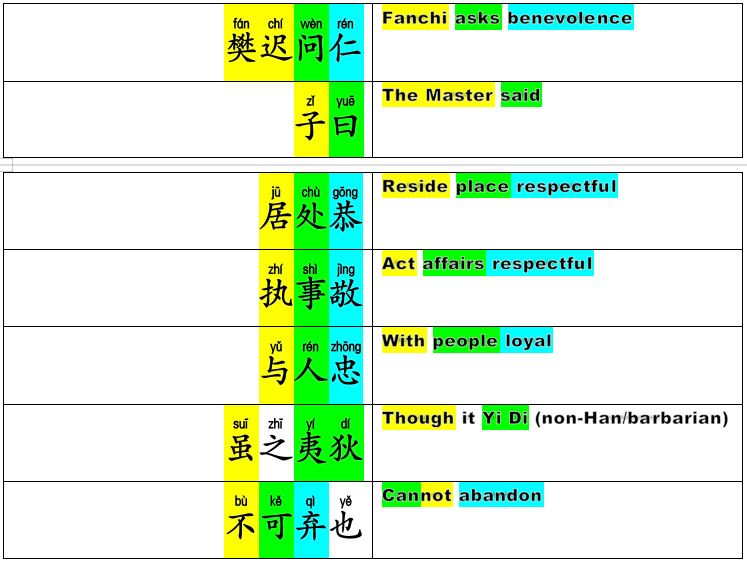Analects 14.5
Original Text:
南宫适问于孔子曰羿善射奡荡舟俱不得其死然禹稷躬稼而有天下夫子不答南宫适出子曰君子哉若人尚德哉若人
Translation:

Other Translations:
Nangong Kuo said to Confucius, “Yi was a skillful archer, and Ao was a powerful naval commander, and yet neither of them met a natural death. Yu and Hou Ji, on the other hand, did nothing but personally tend to the land, and yet they both ended up with possession of the world.”
The Master did not answer.
After Nangong Kuo left, the Master sighed, “What a gentlemanly person that man is! How he reveres Virtue!”
Confucius, & Slingerland, E. (2003). Analects: With selections from traditional commentaries. Hackett Publishing.
Nangong Kuo questioned Confucius, saying, Yi was a skilled archer and Ao could push a boat over dry land, but neither was able to die a natural death. Yu and Ji, however, though they worked the fields in person, gained possession of the empire. The Master made no reply.
After Nangong Kuo had left, the Master said, A gentleman should be like this! An upholder of virtue should be like this!
Confucius, & Watson, B. (2007). The Analects of Confucius. Columbia University Press.













